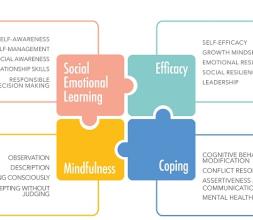The Joaquim Ruyra Elementary School is located in a disadvantaged suburban district of Barcelona. In the 2016-2017 school year, 92% students were immigrants representing 28 different nationalities (including Pakistan, Morocco, Georgia, Colombia, the Dominican Republic, Ecuador, Peru, the Philippines, China, Bangladesh, Senegal, and the USA) or from minority background (Romani). The school has a 40% mobility rate.
National and international press have referred to the school as the miracle school as it had achieved academic outcomes above the average in the Catalan standardised tests, outperforming elite schools in the Catalonia region.
All classes in the school feature group work 40% to 60% of the time. The groups mix students of different abilities, genders and nationalities. The small groups are designed to ensure that no one is left out, and students are encouraged to participate actively. Each group is facilitated by an adult (e.g. a classroom assistants, a parent). Psychologists and special education teachers may also work in the classrooms, and they support volunteer parents, teachers and the students. The extra support and student interaction are considered as essential for supporting and reinforcing children’s learning.











